News
12 LDI Senior Fellows Complete Eight Months of Media and Policy Engagement Training
All Cite Amplify@LDI Program as Boost to Confidence and Editorial Output
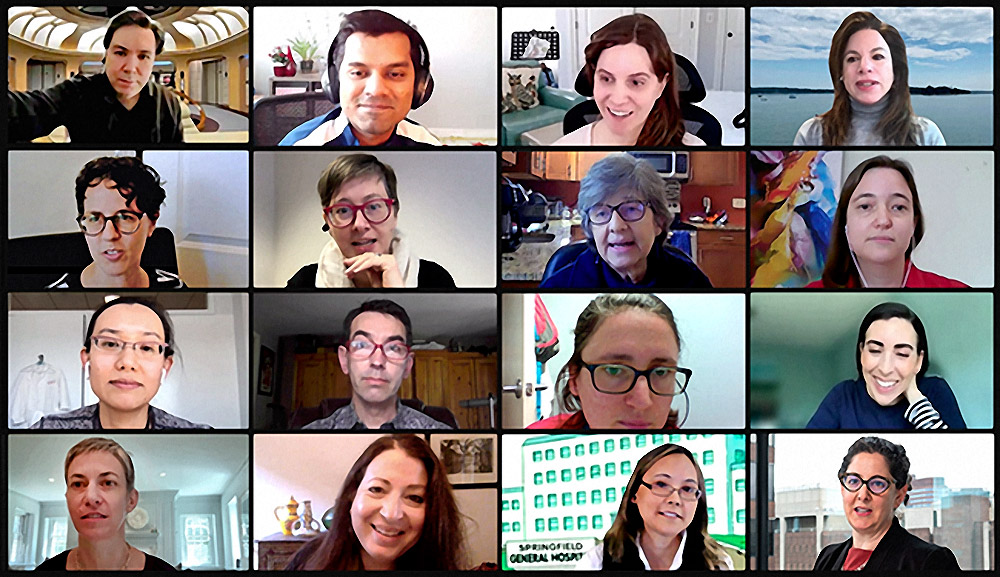
During eight months in the new Amplify@LDI communications and research translation curriculum, 12 University of Pennsylvania faculty members with previously low levels of media experience racked up more than two dozen published op-eds, blogs, and interviews in national print, broadcast, and digital news outlets. In addition, several of them scored engaging connections with Congressional offices and other government agencies.
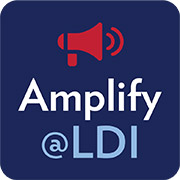
The achievements of the 12 LDI Senior Fellows were celebrated as part of the cohort’s final April 23 Amplify@LDI session in which they discussed their future plans for the continued promotion of their work and expertise to a wider world beyond academia.
Translational communications
Over the last 10 years, the Leonard Davis Institute of Health Economics (LDI) has evolved as a major center for translational communications for Penn’s health services research community. Launched as a pilot program in 2019, the new Amplify@LDI training program became a full-fledged curriculum open to LDI Fellows in September of 2020.
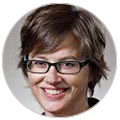
“When LDI launched Amplify, our intention was not to just generally orient the Fellows to media relations and policy engagement,” said Alison Buttenheim, PhD, MBA, LDI’s Director of Engagement. “It was to provide hands-on training, resources and practice to actually get them published in mainstream media, or connected with journalists for interviews, or engaged with relevant legislators, regulators, or other government entities.”
And it worked. The first full cohort of Amplify@LDI alumni now have clips to show from publications including the Washington Post, LA Times, USA Today, Boston Globe, Philadelphia Inquirer, The Hill, STAT, Wired, Newsweek, and Health Affairs, along with interviews in broadcast outlets like NPR, CBS This Morning, NBC, WHYY, and Southern California Public Radio.
Dissemination’s growing importance
As digital technologies and social media have come to dominate and accelerate the daily spread of scientific information in recent years, granting agencies like NIH have increasingly required research applications to include specific dissemination plans designed to make the research findings known to broader audiences. These trends and requirements have challenged many academic researchers whose prior formal training did not include such things as how to collaborate with print or broadcast journalists, engage with government policymakers, or author articles in a vernacular suitable for publication in newspapers, magazines and other general circulation national media.
Designed to teach these skills and practices, the Amplify@LDI program brought in social media experts, working journalists, public relations consultants, writing coaches, and veteran policymakers as instructors. The goal was to do what the name says: teach faculty how to amplify the reach and impact of their policy-relevant research and elevate their profile as content and policy experts. The program is designed to boost enthusiasm for translating and disseminating research as well as building a better understanding of how the media industry really works.
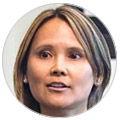
Understanding the news cycle
That’s exactly what it did for Amplify Fellow Genevieve Kanter, PhD, a General Internal Medicine Research Assistant Professor at Penn’s Perelman School of Medicine. “One insight I came away from Amplify with,” Kanter said, “was that for better or worse, the news cycle’s limitations are important factors—timing and relevance to the current news environment are really important. I didn’t really understand that in the context of what we were trying to do. Although I’ve always paid attention to the news, these Amplify sessions helped me understand how to pay attention to it in a different way—more like an anthropologist than just a pure consumer.”
Over the last eight months, Kanter had op-eds published in STAT and Inside Higher Education, was interviewed by the Washington Post and NPR, and wrote a blog that was accepted by Health Affairs and cross-posted on LDI’s website.
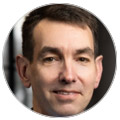
Amplify Fellow Sean Hennessy, PhD, PharmD, a Professor of Biostatistics, Epidemiology and Informatics at the Perelman School, had a similar experience.
“I signed up for Amplify to get a clue on how to do dissemination and translation, which is something I knew very little about,” he said. “I found that dissemination is a learnable skill that takes time and effort, but is well worth it. Op-ed pieces need to be timely, novel or contrarian and make a call for action. I got an op-ed published in The Hill about Medicaid enrollees and access to clinical trials. I wrote a grant that had a requirement for a dissemination plan and, as a result of the Amplify classes, I felt fairly competent in writing that.”
Amplify@LDI homework
Kanter, Hennessy and the other 10 cohort members attended monthly Amplify Zoom sessions for intensive training that even included homework. Examples of some of these homework assignments:
• Select a research paper you’d like to talk to a reporter about. Then come to the class to hash it out in a role-playing go-round with Dan Gorenstein, former Senior Health Care Reporter for NPR’s Marketplace and current Executive Editor of the Tradeoff podcast.
• Produce an outline of an op-ed about your latest work to be critiqued and discussed in class by Meredith Rovine of Vine Public Relations, the national agency used by the communications departments of the Penn Carey Law School and the Wharton School.
• Identify aspects of your research relevant for a policy discussion with a member of Congress. Then, come to class to discuss it with former U.S. Congresswoman Allyson Schwartz and Sheila Burke, former Chief of Staff to former Senate Majority Leader Bob Dole and Chair of the Baker Donelson law firm’s Government Relations and Public Policy Group in Washington, D.C.
Social media coaching
In another session titled “Social Media Workshop: Creating Content and Building Your Following,” the Amplify@LDI Fellows were taken through the step-by-step process of setting up and effectively promoting Twitter, Facebook and Instagram accounts. It was led by Nick Dean, Director of Digital Strategy for Burness, an international communications agency whose clients include the Robert Wood Johnson Foundation.
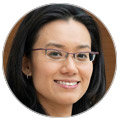
As an “admitted novice to the social media world,” Amplify participant and LDI Senior Fellow Emily Ko, MD, MSCR, Assistant Professor of Obstetrics and Gynecology, said “the Social Media Workshop session helped me understand how academia, health, science, and research intersect with various social media platforms, as well as many PR-related venues from public to private organizations including government. The session was focused and high-yield. Now, at least with some knowledge, I can decide how much I want to include social media in my daily work, and also not be fearful of what I’m missing out on.”

In-house editorial support
In between monthly classes, the Amplify Fellows worked closely with LDI’s internal editorial and dissemination support team to execute real publishing projects. Headed by LDI Co-Director of Health Policy, Janet Weiner, PhD, MPH, the team assists Fellows and Associate Fellows in the conception, writing, and final polishing of op-eds, blogs and issue briefs in their areas of research expertise. Once completed, the works are forwarded to the public relations and media agency retained by LDI to place such pieces in national newspapers, magazines and other media platforms.
“The most unexpected thing I learned in Amplify is that LDI has all these editorial support resources I didn’t know about,” said Holly Fernandez Lynch, JD, MBE, Assistant Professor of Medical Ethics and Health Policy at Penn’s Perelman School of Medicine. “It is incredibly helpful to work with Janet Weiner’s team to produce an op-ed and then have LDI’s outside media consultant get it published in a significant national media venue.”
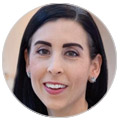
For Fernandez Lynch, whose research focuses on FDA policy and access to investigational medicine, the start of the Amplify course came at the same time she was being inundated with requests for media interviews related to coronavirus pharmaceuticals.
Media interview skills
“Live interviews have been a challenge for me in the past,” Fernandez Lynch explained, “but the Amplify sessions with Dan Gorenstein in particular really helped me gain control. I learned to give simple, direct answers without feeling like I had to explain everything in response to a single question.”

Sharath Chandra Guntuku, PhD, agreed. “As a young faculty member in engineering, going through this program as part of an interdisciplinary cohort was incredibly helpful,” said the Research Assistant Professor of Computer and Information Science at Penn’s School of Engineering and Applied Science. “At the same time, the program positively impacted my writing and speaking. I was just quoted in a WIRED article on an AI that uses Facebook data to predict mental illness. The whole experience exceeded my expectations and provided a great framework to help me navigate the translation and dissemination aspects of my research in a way I didn’t previously know how to do.”
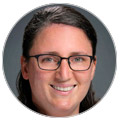
Looking back on her overall Amplify experience, Elinore Kaufman, MD, MSHP, Assistant Professor of Surgery at the Perelman School, said “I think all of us should have training in these areas at some point. It was very useful to practice thinking of myself as an expert and speaking from a position of expertise. While I don’t know everything I wish I did in my areas, very few people know more, and 100% certainty isn’t required in every conversation or interview.”
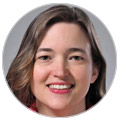
Norma Coe, PhD, had a similar experience. The Director of the Policy and Economics of Disability, Aging, and Long-Term Care (PEDAL) Lab at the Perelman School said, “I came to Amplify to figure out what skills I needed to force myself out of my comfort zone to deal with the media, and it succeeded. This training has been a good stepping stone to figuring out how to do this without embarrassing myself.”